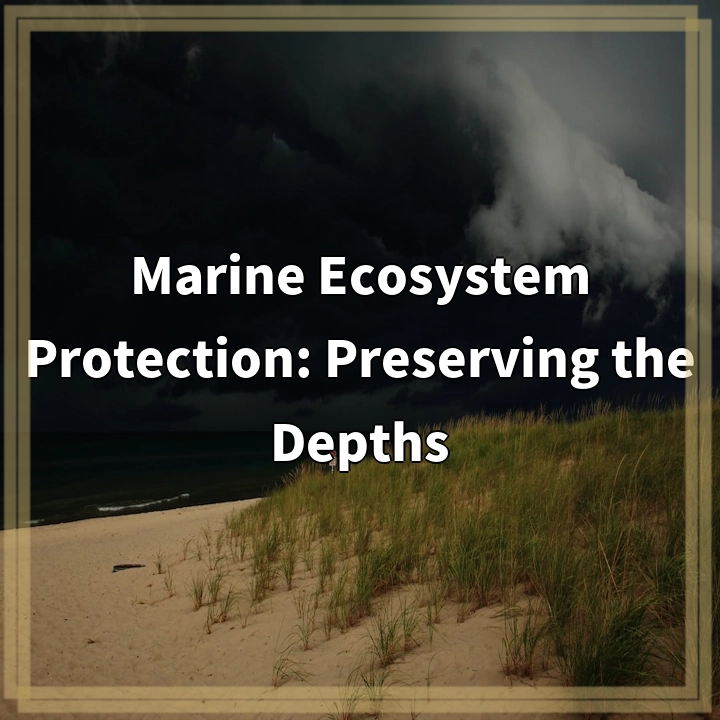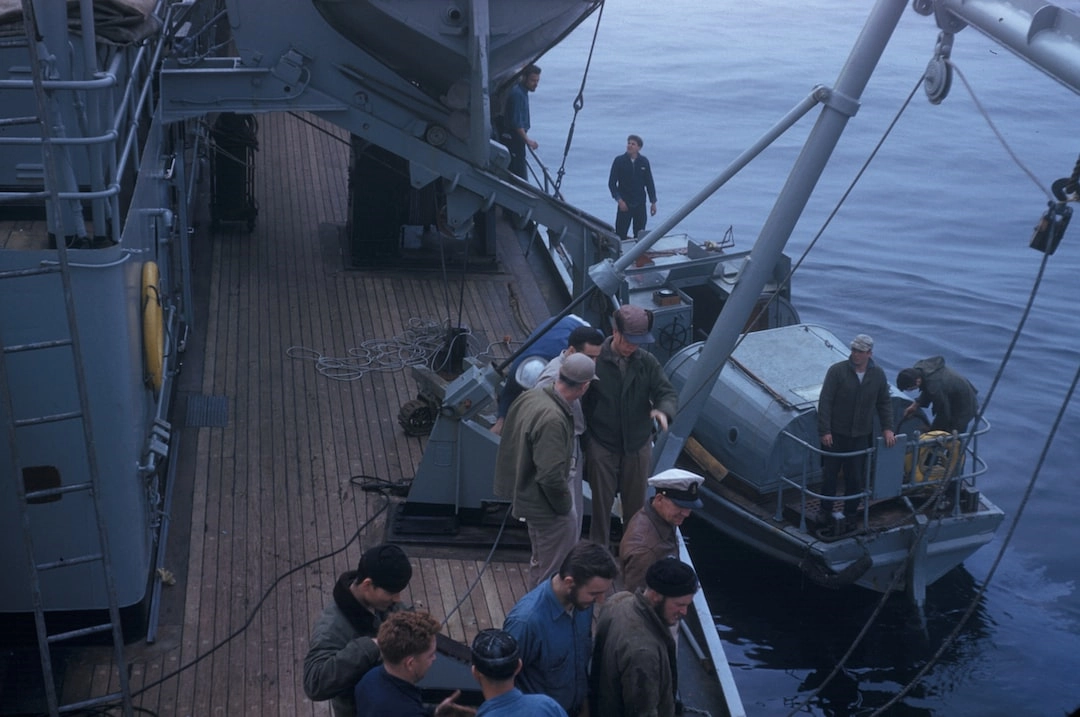
What is Marine Ecosystem Protection?
Marine ecosystem protection refers to the efforts and strategies aimed at safeguarding the health and biodiversity of the world’s oceans and their various habitats. It involves the preservation and conservation of marine species, habitats, and the overall ecosystem, aiming to ensure their long-term survival and sustainability.
Real-World Problems Associated with Marine Ecosystem Protection
Protecting marine ecosystems is of utmost importance, as they face numerous challenges and threats that can have far-reaching consequences. Here are some of the prominent real-world problems associated with marine ecosystem protection:
Pollution and Plastic Waste
The oceans are plagued by pollution caused by human activities. Plastic waste, in particular, poses a significant threat to marine life. Millions of tons of plastic enter the oceans each year, harming marine animals through entanglement and ingestion, and disrupting entire ecosystems.
Overfishing and Illegal Fishing
Overfishing, driven by unsustainable practices, is depleting marine species and negatively impacting the overall health of ecosystems. Additionally, illegal, unreported, and unregulated fishing activities further exacerbate this issue, undermining conservation efforts and jeopardizing the balance within marine ecosystems.
Habitat Destruction and Coastal Development
Coastal development, such as the construction of ports and infrastructure, often leads to the destruction of essential marine habitats like coral reefs, mangroves, and seagrass meadows. This loss of habitat disrupts the delicate balance within ecosystems and threatens the survival of countless marine species.
Climate Change and Ocean Acidification
Climate change and the subsequent increase in ocean temperatures are causing significant changes to marine ecosystems. Rising sea temperatures, ocean acidification, and extreme weather events can harm coral reefs, disrupt the life cycles of marine organisms, and lead to the loss of biodiversity in vulnerable areas.
Invasive Species and Bioinvasion
The introduction of non-native and invasive species to marine environments is a growing problem. These species outcompete native species for resources, disrupt food chains, and can alter entire ecosystems. The consequences of bioinvasion can be devastating for local biodiversity and the overall health of marine ecosystems.
Lack of International Cooperation and Enforcement
Effective marine ecosystem protection requires international cooperation and robust enforcement measures. However, the lack of coordination and enforcement among nations poses challenges. Issues such as illegal fishing, pollution, and habitat destruction often transcend national borders, making it crucial to strengthen international collaboration to address these problems effectively.

Solutions for Marine Ecosystem Protection
Marine ecosystem protection necessitates collaborative efforts and the implementation of various solutions to combat the challenges it faces. Here are some key solutions to address the problems associated with marine ecosystem protection:
Reducing Pollution and Plastic Waste
Efforts should focus on reducing pollution and minimizing the amount of plastic waste entering the oceans. This includes promoting recycling, implementing stricter waste management measures, and raising awareness about the impact of plastic on marine ecosystems.
Sustainable Fishing Practices and Regulation
Implementing sustainable fishing practices, such as setting catch limits and establishing marine protected areas, can help restore and maintain fish populations while preserving ecosystem integrity. Strengthening regulations and monitoring mechanisms is crucial to deter and combat illegal fishing activities.
Preserving Critical Marine Habitats
Efforts should be directed towards protecting and restoring key marine habitats, such as coral reefs, mangroves, and seagrass meadows. This can be achieved through the establishment of protected areas, promoting responsible coastal development practices, and supporting habitat conservation initiatives.
Addressing Climate Change and Ocean Acidification
Mitigating climate change is essential for marine ecosystem protection. This involves reducing greenhouse gas emissions, promoting renewable energy sources, and developing resilience strategies to help marine ecosystems adapt to changing environmental conditions. Additionally, reducing ocean acidification through stricter regulation of carbon emissions is crucial.
Managing Invasive Species
Preventing the introduction and spread of invasive species requires robust biosecurity measures, enhanced monitoring systems, and early detection and eradication programs. These measures can help protect native species and preserve the balance within marine ecosystems.
Strengthening International Collaboration
Promoting international cooperation and agreements is vital in tackling global issues that impact marine ecosystems. This includes strengthening enforcement mechanisms, sharing best practices, and fostering partnerships between governments, organizations, and communities to ensure effective protection and management of marine resources.















